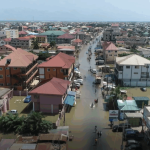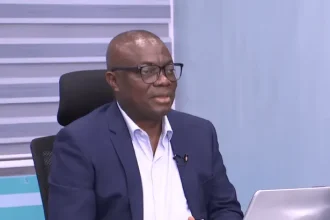The Chairman of the Mines and Energy Committee of Parliament has accused the erstwhile John Mahama-led government of signing highly inimical power purchase agreements at a huge cost.
According to Mr Samuel Atta Akyea, the former administration entered into 43 take-or-pay power purchase agreements, resulting in the current government being obligated to pay over $320 million in 2018 for unused power.
Mr Atta Akyea expressed concern over the consequences of these agreements on the energy sector.
While the current government has already terminated 11 of the contracts, Mr Atta Akyea said the haste with which the previous government made these decisions has had a severe impact on the energy industry.
“In 2018, excess generation capacities contracted under the take or pay cost $320 million in capacity charges and are estimated to increase to $620 million annually with the addition of new plants in 2019.
“These unused supply charges are one of the significant sources of financial strain on the sector. Cumulative net sector debt was $2.7 billion in 2018, with 30 per cent payable to the private sector. This sum is equivalent to 33 per cent of the 2018 government’s tax revenue, highlighting the scale of the financial burden,” he lamented during a media briefing in Parliament on June 13.
However, Former Deputy Minister of Power John Jinapor has dismissed claims that the erstwhile Mahama administration signed power purchase agreements that cost the country over $320 million.
Refuting these claims, John Jinapor said the NPP is to blame for the losses in the energy sector.
“ECG losses alone have increased from 23 per cent to 31 per cent, so when the Minister of Finance pays for those losses, it is not excess capacity. It is power delivered. There is a power reserve margin of 20 per cent, and it is statutory, and this government came and decided that it shouldn’t be part of the tariff structure, and it is a political decision.”
The Yapei-Kusawgu legislator blamed the massive leakages, forex losses, exchange differentials, and factors other than what Mr Atta Kyea alleges for the ballooning energy debt.
“The problem is a result of forex losses, exchange rate differentials, and the unnecessary political interference which is leading to this payment, and it cannot be attributed to former president Mahama. Immediately these PPAs expired, they quickly renewed them and not for the five years that we did but for fifteen years. We will not allow these double standards to go because the facts speak for themselves.”
Background
The World Bank Country Director to Ghana, Pierre Frank Laporte, in an interview on June 4, said the deficiencies in the energy sector characterized by the power purchase agreements signed under the Mahama administration were the major problems in the energy sector driving Ghana’s debts up.
Mr. Laporte explained that the shortfall in the sector is marked by the tariff systems and management issues coupled with expensive power purchases by the state in addition to the transmission losses, which were the major problems in the energy sector driving Ghana’s debts.
He said the misalliance between the production cost of the Independent Power Producers (IPPs) vis-à-vis how much consumers paid led to an upsurge of debts since the government could not make financial commitments to them (IPPs).
Mr Laporte also said the Power Purchasing Agreements (PPAs) the government had signed were expensive. In addition to the exorbitant power purchases, the country was paying for energy it does not use due to the “take or pay contracts.”
“In the case of Ghana, those contracts that have been signed as PPAs are just expensive, and the kind of PPAs signed are take or pay. You pay, although you do not use it. The fact is that in the past few years, Ghana entered into an agreement at the wrong rate and the wrong price, and it has impacted the debt situation.”
“Government should pursue some reforms in the areas of tariff adjustments, addressing the transmission losses through improved infrastructure and restructuring the power purchasing agreements consistent with the energy demands of the country to reduce a significant portion of the debts,” Mr Laporte observed.
















